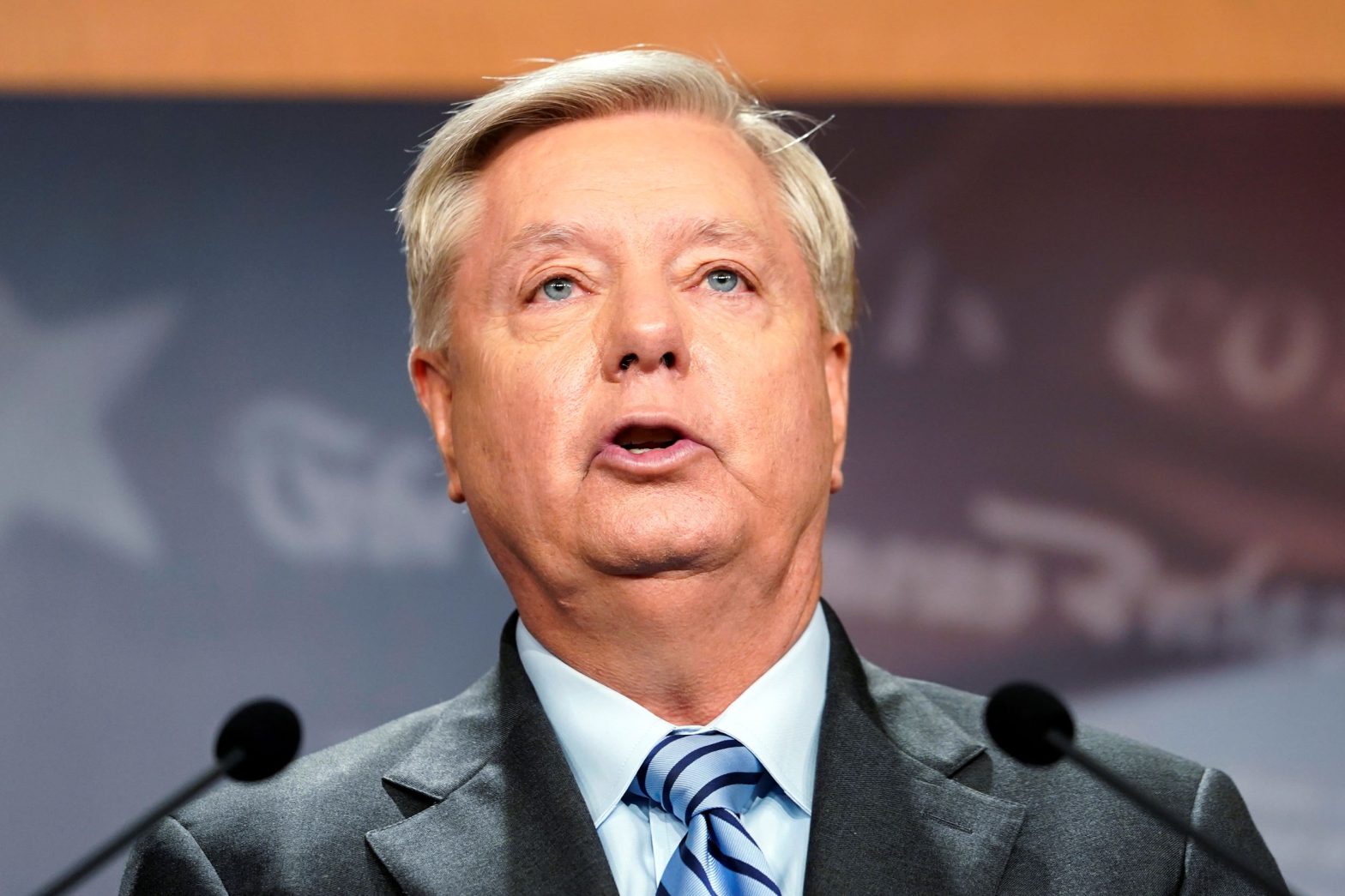Lindsey Graham Asks Supreme Court to Block Grand Jury Testimony

WASHINGTON — Sen. Lindsey Graham, R-S.C., has asked the Supreme Court to block a lower court order forcing him to testify before a grand jury about former President Donald Trump’s alleged interference in the 2020 election in Georgia.
In a petition to Justice Clarence Thomas, who handles emergency petitions out of the Atlanta, Georgia-based 11th U.S. Circuit Court of Appeals, Graham asks for a stay of the district order that he testify pending the final resolution of his appeal.
“Without a stay,” the 41-page filing says, “Senator Lindsey Graham will soon be questioned by a local Georgia prosecutor and her ad hoc investigative body about his protected ‘Speech or Debate’ related to the 2020 election.
“This will occur despite the Constitution’s command that senators ‘shall not be questioned’ about any speech or debate,” Graham’s lawyers continue. “It will occur in state court, without the consent of the federal government. And it will undisputedly center on Sen. Graham’s official acts — phone calls he made in the course of his official work, in the lead-up to the critical vote under the Electoral Count Act.”
His Jones Day legal team, led by Donald McGahn II, asserts “the district court’s refusal to quash or at least stay this impermissible questioning — and the 11th Circuit’s cursory acquiescence, while misquoting the ‘speech or debate clause,’ failing to invoke or apply the standard for a stay, and without so much as mentioning sovereign immunity — cries out for review.”
Graham’s attorney goes on to claim that if the senator doesn’t get a stay and is forced to testify, his “constitutional immunities will be lost, and his statutorily guaranteed appeal mooted, the moment the local Georgia prosecutor questions him.”
Graham’s lawyers conceded the senator called Georgia Secretary of State Brad Raffensperger to ask about the “signature match procedure” for absentee ballots and about allegations of voter fraud in the 2020 presidential election.
“Sen. Graham needed this information for a certain impending vote on certifying the election under the Electoral Count Act,” they write. “He also served as chairman of the U.S. Senate Committee on the Judiciary reviewing election-related issues (including possible national standards for mail-in voting).
“After the phone calls, Sen. Graham relied on the information gained from the calls both to vote Joe Biden ‘the legitimate president of the United States’ … and to co-sponsor legislation to amend the Electoral Count Act,” they said.
“Most courts that have addressed similar issues,” Graham’s attorneys write, “hold that the speech or debate clause ‘forbids inquiry into acts which are purportedly or apparently legislative, even to determine if they are legislative in fact.’
“When a legislator takes some action that is objectively ‘legislative’ these ‘courts do not probe the motives of [the] individual legislator,’ even when the investigation is allegedly ‘mere pretext for an unconstitutional ulterior motive.’
“Yet here, the district court permitted precisely that sort of additional ‘probing’ into motives,” they claim. “The district court allowed questioning of Sen. Graham based entirely on a wholly impermissible reason: Sen. Graham’s supposed political ‘purpose’ for his investigation.
“The court speculated that Sen. Graham was motivated, not for purely ‘legislative’ reasons, but instead to help President Trump. The district court was wrong factually: Sen. Graham investigated in his official capacity for legislative reasons. But, in any event, the senator’s motives are irrelevant legally: Whether an act is covered by the immunity turns on ‘the nature of the act,’ ‘stripped of all considerations of intent and motive.’
“Only this court can prevent the state-court questioning of Sen. Graham contrary to constitutional immunities, because the district court and 11th Circuit have refused to temporarily stay the proceedings until the appeal is finally resolved,” they conclude.
Dan can be reached at [email protected] and @DanMcCue






















